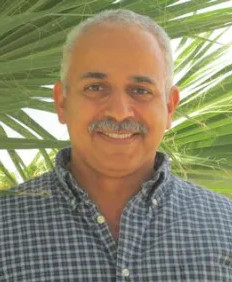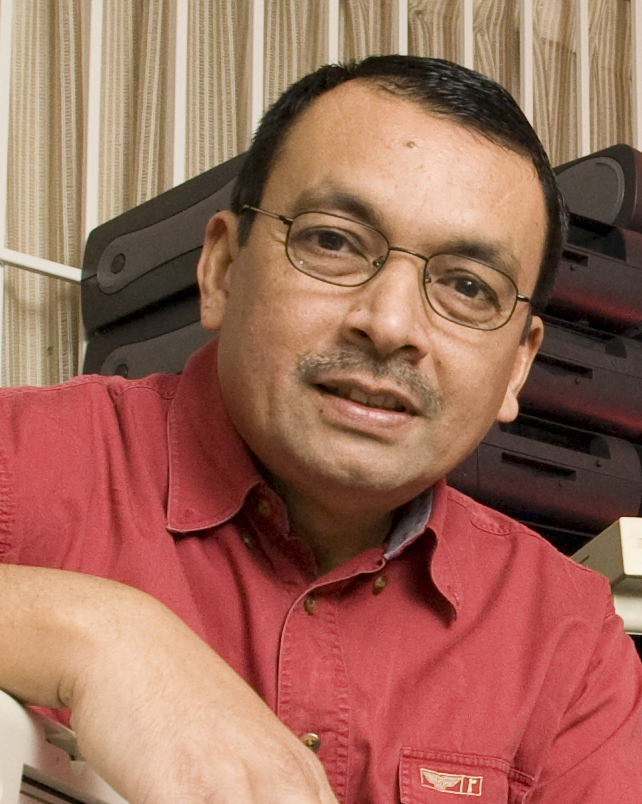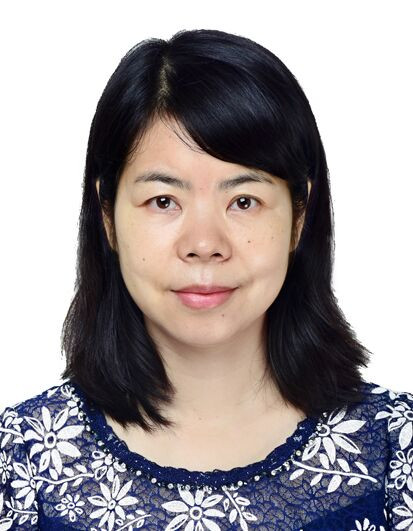Khaled M Bali
University of California, San Diego, USA

Biography: Dr. Khaled Bali is the Irrigation Water Management Specialist at the University of California Kearney Agricultural Research and Extension Center in Parlier, CA. He has been with UC Division of Agriculture and Natural Resources since 1992 and served in different capacities as irrigation and water management advisor in Imperial County (1992-2016), UCCE county director in Imperial County (2009-2016) and two years as interim director of the UC Desert Research and Extension Center in Holtville (2012-2013 and 2014-2015). He received his PhD in soil physics from UC Davis (1992), MS degree in irrigation and drainage from UC Davis (1987), and BS degree in soil and irrigation from the University of Jordan (1984). He is responsible for designing, implementing, and conducting educational and applied research programs in irrigation, drainage, water management, water quality, soil salinity, waste management, reuse of wastewater for irrigation and nonpoint source pollution control practices. He was a Fulbright Scholar at the University of Jordan (2006-07) and conducted research on reuse of wastewater for irrigation and constructed wetlands to treat wastewater.
Sunil Herat
Griffith University, Australia

Biography: Sunil Herat is an Associate Professor in Waste Management and Circular Economy at Griffith University, Brisbane, Australia. He is the Program Director of the Master of Environmental Engineering and Pollution Control. He is a member of the Expert Subsidiary Group of Regional 3R and Circular Economy Forum of Asia and Pacific, managed by the United Nations Centre for Regional Development. A/Prof Herat has over 20 years' experience in waste management, particularly on issues and challenges related to developing economies. He is an expert on training programs in municipal solid waste management, hazardous waste management and cleaner production and eco-efficiency, and circular economy and has extensive experience in training waste management professionals within Australia and around the world. He has conducted training and capacity building programs in Vietnam, Indonesia, Singapore, India, Sri Lanka, Bhutan, Thailand, and Pacific Islands (Fiji). His latest training programs involve tackling marine pollution issues through plastic waste management and waste to energy for Indonesia's government officials. He is also actively engaged in the revision of environmental regulations in Vietnam. A/Prof Herat has an active research interest in solid and hazardous waste management, especially in developing countries. He is an adviser to the United Nations on issues related to managing electronic waste (E-waste) in developing countries with a particular focus on policy development and regulatory aspects. He is also researching issues associated with implementing 3R (Reduce, Reuse, Recycle) activities in developing countries primarily related to E-waste and plastic waste regarding policy aspects such as Extended Producer Responsibility (EPR). He is also a contributor to the United Nations publication GEO 6.
Yi Huang
Chengdu University of Technology, China

Biography: Yi Huang, female, professor, doctoral supervisor at Chengdu University of Technology (CDUT). She is the academic and technical leader in Sichuan Province, China. She is the deputy director of the Key Laboratory of Synergistic Control and Joint Remediation of Soil and Water Pollution of National Environmental Protection, the member of Chinese Society of Mineralogical and Petrographic Geochemistry, the director of the Soil Fertilizer Society of Sichuan, and the member of the European Geological Union (EGU) and the American Chemical Society (ACS). Prof. Huang is mainly engaged in the research of environmental geochemistry and ecological restoration of mining area. In the past ten years, she has presided more than 15 research projects. She has established a new isotope tracer method to quantitatively identify the source of heavy metals, revealed the migration and transportation pathways and the laws of heavy metals in the ecological chain, and created a triple barrier technology to prevent and control the migration of heavy metals in multiple environmental media. She has published more than 110 academic papers, 3 monographs, and authorized 12 invention patents. She was awarded the second prize of National Environmental Protection Science and Technology, and the second prize of Sichuan Provincial Scientific and Technological Progress.